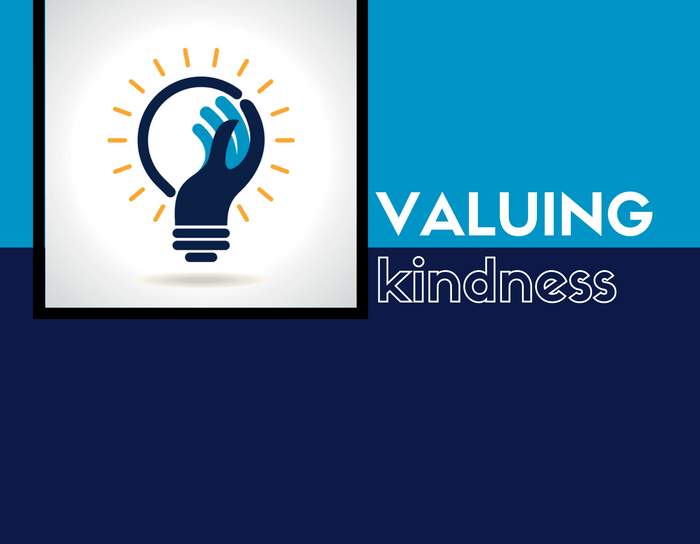“Excuse me, sir, but do you have any tissues?”
Dressed in all black, I had difficulty making my voice sound normal.
“Our front desk isn’t stocked with toiletries,” the hotel receptionist started to say, looking up from his computer as he spoke. “But…”
Our eyes met, and he trailed off. I could tell he was doing the math: my black dress, my husband’s dark suit behind me… somber attire for noon on a fall day.
“You know what, I think we do have tissues,” he said, stepping into the hallway behind him. He reappeared seconds later, holding one of those small, personal tissue packs. “Here you are,” he said with a nice smile.
I smiled gratefully in return, clutching the tissues as we hurried out of the lobby. It wasn’t until we were in the car that I noticed—the tissue pack was already open. The hotel receptionist had clearly given me a pack of tissues from his personal stash.
Later that day, sitting at a funeral with my husband a thousand miles away from home, I couldn’t help but think about that man’s kindness, and how his small gesture had added some light into our otherwise dark day.
“We are hardwired to connect with others, it’s what gives purpose and meaning to our lives.” Brene Brown
What compels someone to be kind? What encourages someone, especially while they’re in their job role, while they’re executing work tasks, to demonstrate compassion? This man could’ve reminded me that there were tissues in my room, could’ve told me that he didn’t stock tissues at the front desk… but instead, he noticed that I was dressed for a funeral, registered that the tissues were a last-minute but impactful afterthought, and acted as though I were a friend in need—even though he didn’t “know me from Adam” (as we like to say in the South).
I couldn’t help it, I found myself thinking about that man’s kindness and customer service long after our somber trip to my husband’s hometown. Just a few weeks later, I saw it again.
It was a silly accident that so many families go through. Our Christmas tree fell—I should say crashed—and hit our flat screen on the way down. THE flatscreen, the TV in our living room that my husband and I painstakingly saved and saved and saved for. There was a big gray mark right at the top of the screen, and I truly thought I would see my husband cry the first time he looked at it.
That very morning after a quick Google, I called an electronics company. When the man answered, I asked him how much it would be to repair a flat screen TV damaged by a rogue Christmas tree.
Over the next 15 minutes, that man convinced me I did not need his services. Not only did he painstakingly explain why fixing a flat screen TV is almost as expensive as replacing it, he also outlined other options, like a homeowner’s insurance claim. After asking me about the damage, he walked me through steps for cleaning the scratch, suggesting that the screen might not be damaged but just dirty—and he warned me not to call any repair companies until we’d tried repairing it ourselves.
When I hung up the phone, I could not believe that he had spent so much time talking to me about why I should not hire him or spend my money on his services. He was kind, patient, explanatory—even though he owed me nothing, and even though I could give him nothing.
Sure enough, when my husband and I tried to clean that scratch in the way he recommended, we discovered it wasn’t a scratch at all, but was a little bit of collateral tree sap that could easily, but carefully, be cleaned off. Holiday rescued, husband happy—and potentially thousands saved, all because one man was kind enough to help, even if it didn’t help him to do so.
Once again, I found myself asking— what encourages this kind of kindness toward a fellow human, even when said human can offer nothing in return?
These days, “culture” in regards to work culture is quite a buzzword. We talk about it as if it’s something we can acquire, purchase, or train. But thinking about these experiences, it’s easy to see how impossible it is to rote train true kindness. Can you imagine, Chapter 11: When to give away your personal pack of tissues. Or Topic 13: How to tell a customer that your services are not needed.
Yet here I am, weeks later, thinking positively about those two acts of customer service, acts that will forever align me to those brands.
A new field of research is suggesting that when organizations promote an ethic of compassion rather than a culture of stress, they may not only see a happier workplace (eg. a lack of bonding within the workplace has been shown to increase psychological distress, positive social interactions at work have been shown to boost employee health) but also an improved bottom line. Emma Seppala, Ph.D., Associate Director of the Center for Compassion and Altruism Research and Education (CCARE), Stanford University
So going into the new year, as I think about professional goals, I find myself asking how I can support a work culture that delivers this level of customer service—the type of company that supports kindness in the hearts of its empowered employees. I imagine it as a culture that reinforces kindness, toward employees, customers… everyone.
Only true, genuine kindness motivates a split-second decision to help someone, so to drive it as a value for Reify, I might start with small acts of kindness that support the team. As we grow, I want to see that we can all make choices on behalf of our customers’ needs, and can always act with the customer’s, or fellow human’s, best interest at heart.
In the meantime… if you’re ever in Michigan, consider the Crowne Plaza Auburn Hills, and if you need electronic or home/work entertainment support, call American Home Entertainment. Trust me—they’ll treat you well.
This post was also published on LinkedIn as https://www.linkedin.com/pulse/valuing-kindness-sarah-glova.




























